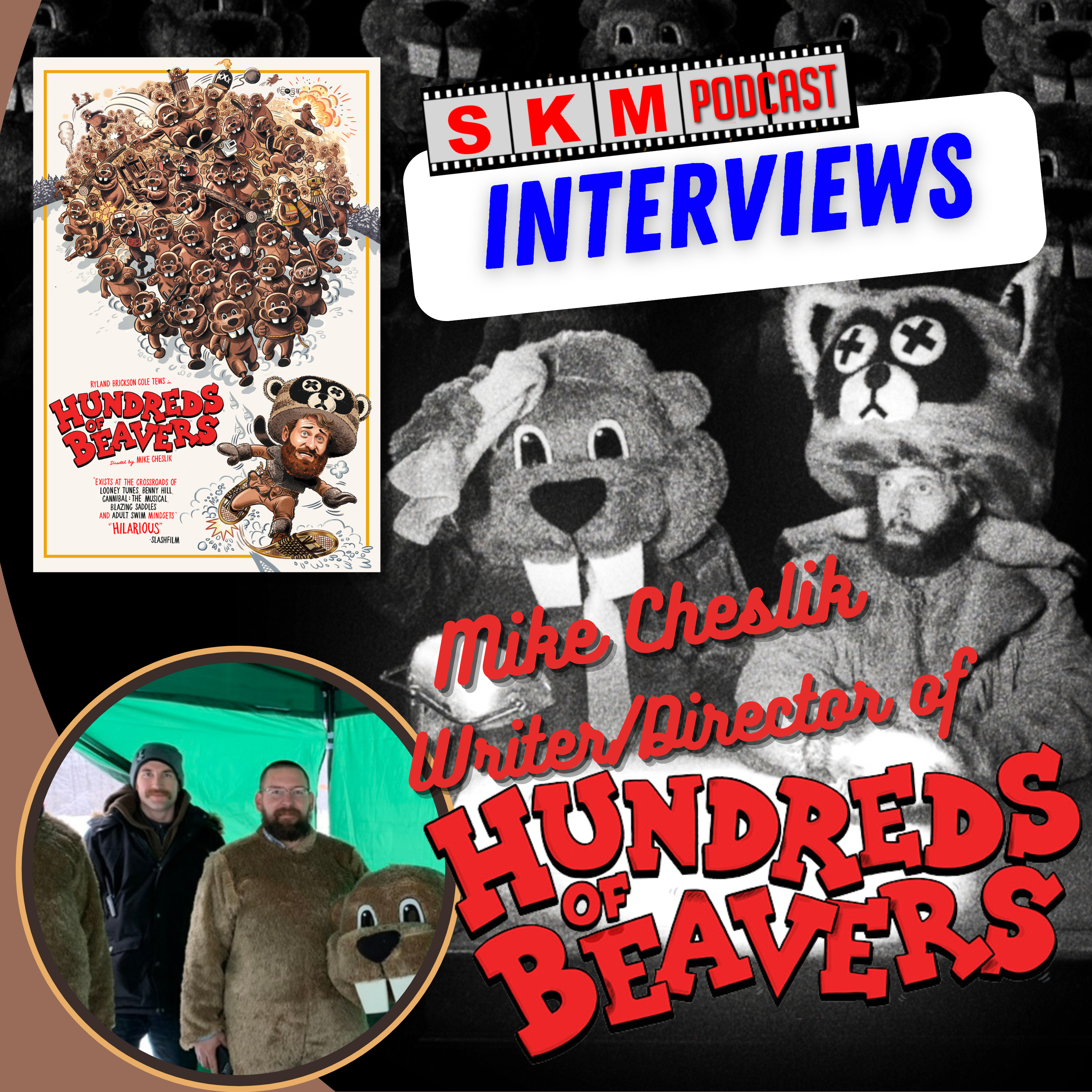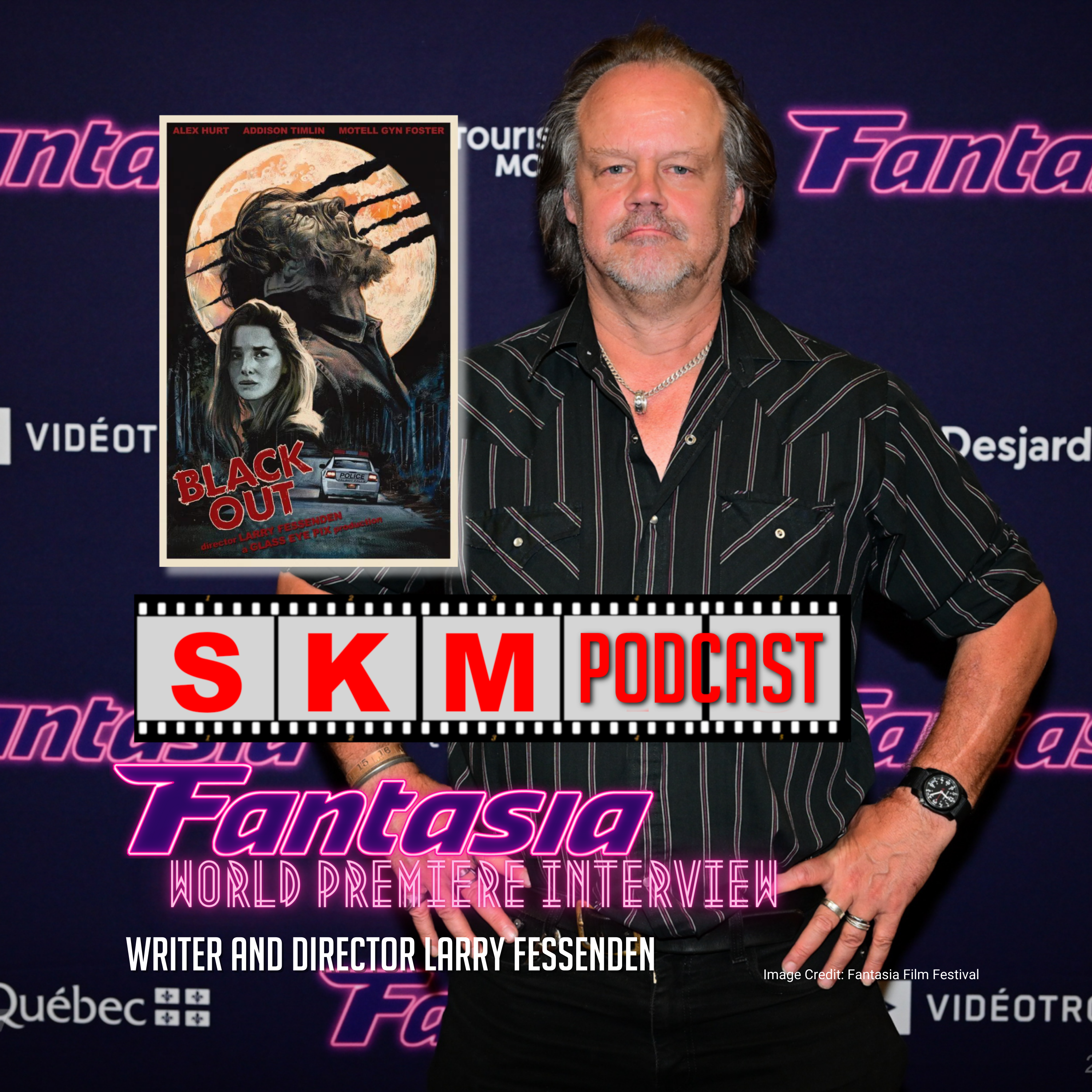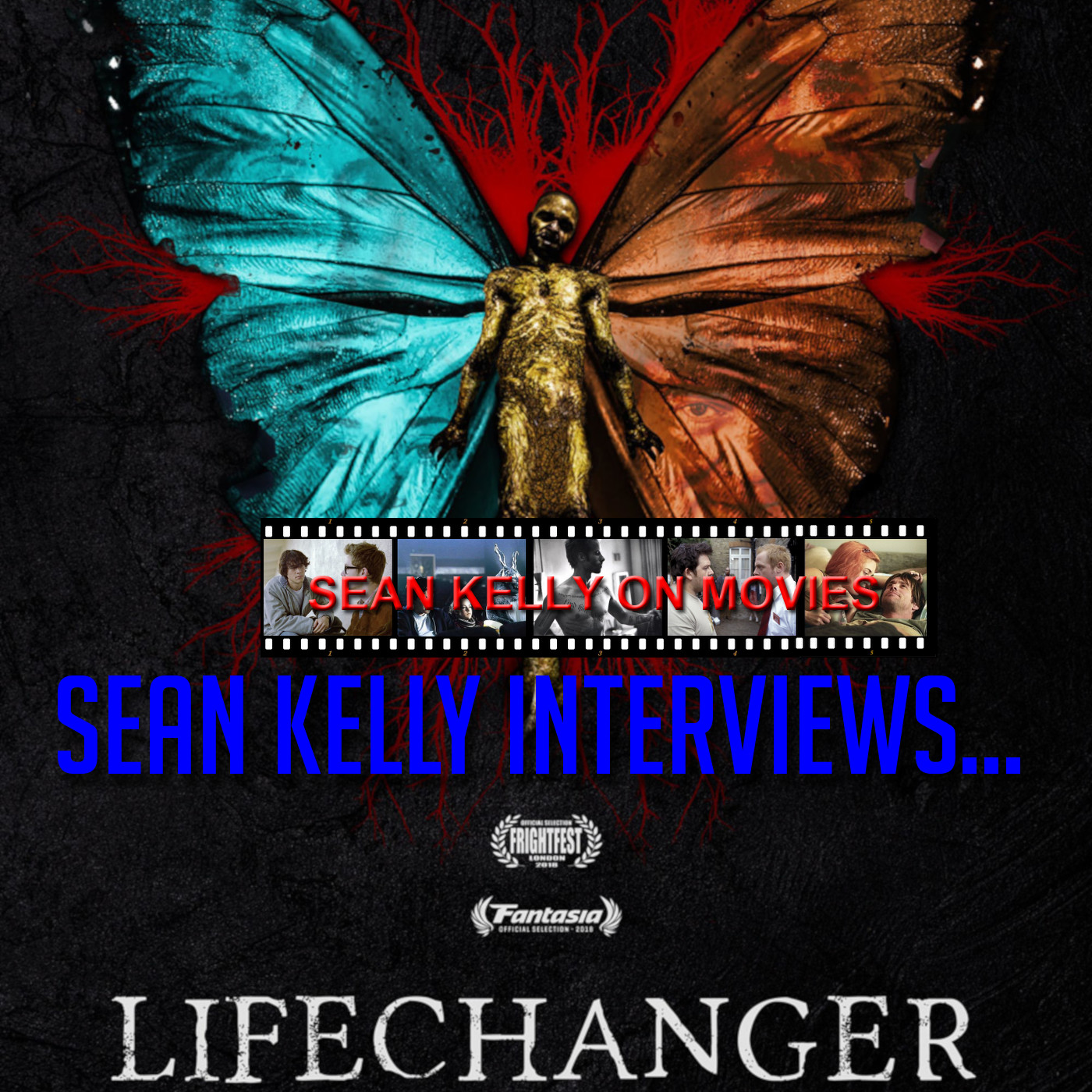Episode Transcript
[00:00:10] Speaker A: Sean Kelly interviews Peter and Seth Shriver on Endless Cookie. Like, and subscribe for more content like this.
[00:00:19] Speaker B: Oh, I thought it was a washing machine. You can keep that going. I'm sorry.
Sorry. It's like a million interruptions, just like the movie.
[00:00:26] Speaker A: Guess we'll start by talking about the genesis of the movie and your relationship with each other.
[00:00:32] Speaker C: Yeah, we're brothers, so.
[00:00:33] Speaker B: Yeah, we're brothers. We share a father, I guess. I mean, like, one of the things that we started realizing, you know, like, it was kind of like, Pete's an amazing storyteller. It's kind of true. Like, true to the. True to the movie. Like, the way we described in the movie. It's like, Pete's like my older brother, and I love his stories and. And he's like an amazing storyteller, and he has an amazing, like, you know, perspective. So it was. And I'm an animator, and so it was kind of like a natural, you know, an obvious kind of connection. But one of the real, like, genesis was when we were in.
When. When I. The previous film that I made, I traveled around Europe in a bunch and. And went all over the world with it. And we would run into people and they would be like, oh, you're from Canada. Oh, Canada. Oh, the model citizen of the world. Oh, they're so good to their first nations. Oh, they're so good to the environment, you know, and it was like, geez, I don't know. Sorry to burst your bubble, buddy. But, you know, you know, Canada's great and Canada's amazing. But, you know, there's also, like, you know, there's. That's maybe not so true. There's lots of problems. And I found myself telling Peter's stories, and it was just like, man, Pete should be telling these stories. You know, like, he should be telling his own stories. And we could, you know, then that was kind of one of the original conceptions for, like, you know, thinking about writing a grant to, like, get some money and travel up to visit Pete. And then originally, we were actually just, you know, it was.
There was going to just be, you know, like, it was going to be a straight up, like, professional recording of Pete telling, like, you know, some of his stories. And. And then it kept getting interrupted, like, by the kids and by the neighbor, by the dogs. Like, it was, like, totally terrible and wasn't planned.
[00:02:16] Speaker C: And it was like, yeah, there wasn't really anywhere in my community to use to have soundproof or have a, like, very good recording.
[00:02:27] Speaker B: Like, Pete's got eight kids and. And and 16 dogs and lives in a four bedroom house. You know, so it's like we're recording in the living room and it's like impossible because everyone's up to their own little thing.
[00:02:39] Speaker C: It's, it's where everybody goes by. It's like Grand Central for going to the kitchen, going to the bathroom or going outside. So.
[00:02:48] Speaker B: So in the beginning, then when eventually we, we realized it was totally impossible, then we gave into the chaos and then it allowed us to like kind of go, go with it and just go with the chaos and it made our lives way easier in all honesty. And then once it kind of, once some of the kids were in there and we realized that it was a family portrait then, or turning into a family portrait, then we were like, you know, put the like other family members in it. And so that's kind of like how it evolved. And then it just morphed from there and it slowly, slowly grew from like the different stories that came out of conversations. And like Pete says like, like how do you describe it?
[00:03:26] Speaker C: Just conversations on the kitchen table. So family, family discussions. And then they got recorded. So, so I'm glad there are certain things we didn't talk about some of the stories.
[00:03:39] Speaker B: Well, it's good. The one good thing about the movie taking nine years was that some of the stories, Pete was like, don't put that in the movie. I don't want the kids hearing that, you know, when they were little and then luckily they're older now, so, so they can, you know, like that we.
[00:03:55] Speaker C: Could, we could put some of those.
[00:03:57] Speaker B: Movies in the story.
[00:03:58] Speaker A: Now we should talk about the length of time it took to make this film. So I remember seeing your previous film, Asphalt Watches, in like, I think it was Canada's top 10, 2014 and the so but how long after that film did you start making this film?
[00:04:16] Speaker B: Geez, I don't think so. Shane Eamon and I made iPhone watches and then we, I think we were like trying to work on something and then it was like it wasn't really working out. And then, and then I think it was like 2016, I think was when, or maybe 2015 was when I first started to kind of, you know, get some, get some ideas together to, to work with Pete and to visit Pete. I mean and like, you know, like I hadn't seen Pete in a while, so I wanted to go up and visit the kids and check in on everyone and stuff like that. And so it was a good excuse to go and, and hang out with family. And then it kind of like, you know, snowballed into, into a bigger project. Pete and I, before Asphalt Watches. My first animations were Pete telling stories and animating them. And I did a series of like, you know, 10 little shorts.
I don't know how many there were or something like that though. But so it wasn't like a new idea. It was like actually going back to an old like, you know, kind of like fun project.
But it's great that you know, like, because then it having all the interruptions kind of excelled it into something different.
[00:05:26] Speaker A: So what were the challenges with creating a animated hybrid documentary type film?
[00:05:32] Speaker B: The distance between each other is like made it quite hard like because that's.
[00:05:38] Speaker C: Two days travel from Toronto to Shimada.
[00:05:40] Speaker B: So and there's no roads going to Shimadawa and it costs like the same as flying to like Japan. So it's like flights never line up so you always have to stay in a motel in Winnipeg. And it's like, you know, it's quite a like, you know, trip just to get to Shimadow also. It was, that was one reason, like it was, that was one struggle was just being like far apart from each other, like and having to, you know, go up there to show.
And they didn't have like, they didn't have very good Internet until recently. And like, I don't even think they had a, like have like they had a computer that was just terrible for a while anyway. So it was hard to like send stuff up. Eventually we just, we mailed a zoom recorder and then ADA became the on site zoom, like for follow up, like kind of like little bits of dialogue that we needed. So that actually made life easier kind of near the end. But I don't know, it was hard. It was like, it was extremely fun and working with like no one's an actor. So there was like you have to just record a long time to get people comfortable with the microphone and to do genuine lines, you know, like it takes a long time if you're not like, you know, pretending. It took a really long time but you know, like now that it's done. And it was painful. Like the actual physical animating of it was quite painful. Like there was a whole, there was like a, a long period of time where I had like carpal tunnel and I was like drawing Pete's hand stuck in a trap, like with my own hand, like almost feeling paralyzed. And it was just like, what the hell? Like this is like, is it like hurting my hand to draw a hand hurt. But I actually got through that problem. By beating my wrist. The stinging nettle. Someone suggested that. I thought it was insane, but I was so desperate that I did it. And it actually, like, totally cured my. My carpal tunnel. And I like, have. I. You know, I do it like, maybe like once every nine months. And it's like, shocking. I mean, you're probably gonna think I'm a crazy person now. I thought the person was crazy when they told me, but saved me.
[00:07:30] Speaker C: I heard bees work.
[00:07:31] Speaker B: Yeah, bee stings work too. I haven't tried that. That sounds. That sounds more worse.
Yeah.
[00:07:36] Speaker A: So could you talk about the involvement of your extended family and coming up with, like, the on screen characters of them, such as Cookie being a literal Cookie.
[00:07:46] Speaker C: Well, that's her name when she was two years old, calling her by her real name, like, calling her Kristen. And then she couldn't say Kristen, so she ended up saying Cookie. So we've been calling her Cookie since she was like 2 years old. When I had to go register for school when, like, first day of school, I'm looking around at everybody who knows my daughter's real name.
[00:08:05] Speaker B: Like, she couldn't remember her real name.
[00:08:08] Speaker C: And my. The lady behind the car said, oh, never mind, I'll fill it in. And then the bus stops. Cookie cuts out, and she's crying. She said, they kept calling me Kristen Square. I said, that's not my name. My name is Cookie Squire.
[00:08:21] Speaker B: Yeah, like, some of the characters, I mean, yeah, like, that was what. How Cookie became a cookie. Some of them it was like, funny. Like it was kind of just like, you know, know, sometimes you didn't even know. Like, like with the progression of asphalt watches and like that drawing and like, this is kind of a progression of that. Like, some of the characters would be like, you know, you don't even know how you got there, but it really just is like, holy mackerel, this really looks like Ada. You know, like, this feels like Ada.
And sometimes it'd be like, really like, you know, like DEZ was just loving her character. The elastic band saying, like, that's me, that's me. I mean, and that was for more of a reason because she's very like her.
Her ability to fit in, in Shimada is like, very surprising. After growing up in Toronto for a while, then she had moved back to Shimadow, and the elasticity of her, you know, like, ability to.
To kind of fit in there was always surprising.
[00:09:11] Speaker C: So, yeah, like, my, my son's always wearing sports shirts, so he had that Chicago Bulls, like, tank top and the hat.
[00:09:19] Speaker B: Yeah, he loves The Chicago Bulls. Antonio looks and kind of like made his face look a little. He looks a little bit like that, but I kind of made his face look a little more like a Chicago Bulls logo.
[00:09:31] Speaker A: So how did you settle on the title Endless Cookie?
[00:09:35] Speaker B: Well, Cookie was always like interrupting and like kind of messing around. And it was like once we knew that we were going with the like the chaos, it was like, okay, well, working title Endless Cookie. Because she's like endlessly screwing around and like, you know, being funny too. Like being hilarious and like was really funny. She still is really funny and really outgoing and like has a lot to say.
[00:09:55] Speaker A: It's kind of like a big like turning point in the film. Like when you said you started this when I was nine, I'm 19 now.
[00:10:05] Speaker B: Well, there was a, there was like a couple years where I was like, oh my God. When it started taking too long, like when it started being like, when are we going to be done this movie? Where it was like, did we curse ourselves by calling this Endless Cookie? Is this like a curse and we're never going to finish the film? We should have called this movie, you know, Finished Cookie or something. Because that was a thing too where it was like, like, you're still working on this, like coming back and visiting the kids. They're like, what's this for? Oh, it's for the same thing.
[00:10:34] Speaker C: Really.
[00:10:35] Speaker B: Like, yeah, so it went on way too long. But it's sweet now, like, you know, pretty happy. Like I felt like, oh God, like the kids are all growing up. This is like, we got to get this done quick. Like, they're not going to be cute anymore. They're adults now. Like, oh no, their voices are changing.
[00:10:50] Speaker C: But yeah, I got two grandkids now too.
[00:10:52] Speaker B: Yeah, he's got two grandkids. In the end though, it's been really sweet. It's been really sweet that it actually took so long and the kids are all grown up now. And you know, Seth was doing the animation.
[00:11:02] Speaker C: He got married as a two year old son now.
[00:11:06] Speaker B: That's right. Yeah, lots is changing. My wife, there's another kid on the way. The family's growing. I think probably it's like unfortunately, like, I think like three family members passed away while making this, but three have been born.
[00:11:18] Speaker A: What's next for you? And do you hope that your next film comes out in less than a decade?
[00:11:21] Speaker B: I know. Well, it's the scary thought of working on another project that takes so long.
I think, you know, one of the big reasons why the, the previous projects have taken so long. Is that like, you know, like, for the first one, Shane and I were the animators, you know, so it took. It took a long time to. To do everything ourselves.
And this project, I had an assistant for two months, but most of it was just animated by me.
So, you know, if we get more help, like more. More funds to hire other people to help, maybe Cookie could get on the animation table. Maybe Chris.
There's a bunch of drawers in the family, so hopefully they can, like, jump in and. And help make things go quicker. That's my dream.
[00:12:04] Speaker A: Oh, that's. That's actually something I remember from the hot dogs. Q and A is that Cookie drawings was the inspiration for the animation.
[00:12:12] Speaker B: Cookie? Yeah, Cookie, like, for Cookie section. She drew those drawings. That's right.
So she drew those drawings and then I animated them. She was supposed to animate it herself, but, you know, like, teenage hood got in the way. But she's getting good. She's drawing still. Simone's drawing up a storm and Chris draws up a storm. So like, hopefully, you know, hopefully they can bond their own projects from this.
[00:12:34] Speaker A: Okay, so that's some of my questions.
[00:12:36] Speaker B: Beautiful.
I get a blow up yet?
Ah, there you are. I like this background. They just let you sit in that movie theater like that?
[00:12:45] Speaker A: It's a virtual background.
[00:12:47] Speaker B: I know. I'm joking with you.
[00:12:51] Speaker A: Sean Kelly on Movies Interviews is part of the SK on Movies podcast network. You can access links to all our shows by going to skonmoviespodcast, ca or search us on Spotify, Apple Podcasts, YouTube, or where else you listen to your podcasts. This has been a production of Sean Kelly on Movies.


